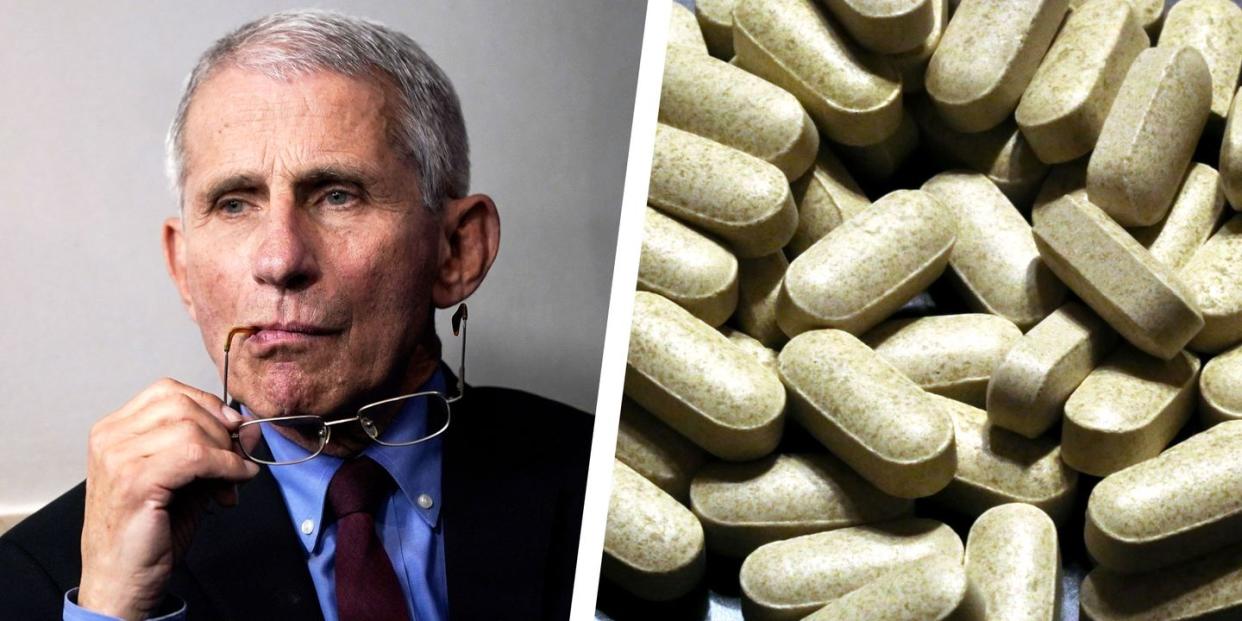Sorry, Dr. Fauci, but Supplements Aren't That Great for Preventing Disease

It's rare that we at Men's Health disagree with Anthony Fauci, M.D., director of the National Institute of Allergy and Infectious Diseases. (He has, after all, been right about so many things regarding COVID-19.) Except that in a discussion last week, Fauci seemed to suggest that taking a supplement may improve your odds of preventing illness.
The truth is that while some nutrients—particularly vitamin D and C—are good for your immune system, the research is a little shaky. And, what's more, you don't need to take those nutrients in supplement form unless you're suffering from a deficiency (most people aren't).
In fact, it's better to eat those nutrients from real foods instead of supplements, because real foods offer a whole host of added benefits.
Fauci, frequently answers COVID-19 questions on celebrity Instagram accounts. Last week, he talked about school safety during the pandemic with actress Jennifer Garner on Instagram Live.
In the interview, Dr. Fauci suggests supplementing with vitamins C and D to aid your immune system, INSIDER reports.
"If you're deficient in vitamin D, that does have an impact on your susceptibility to infection. I would not mind recommending, and I do it myself, taking vitamin D supplements," he said. "The other vitamin that people take is vitamin C because it's a good antioxidant, so if people want to take a gram or so of vitamin C, that would be fine."
Experts are still learning about the novel coronavirus—including risk factors associated with the virus. And it's important not to misinterpret Dr. Fauci's comment as a proven method of prevention. For now, washing your hands, wearing a mask, and physical distancing are the best ways to avoid getting COVID-19—which Dr. Fauci reiterates in the interview.
Dr. Fauci may be referring to a new claim that a vitamin D deficiency could leave you susceptible to getting sick. People who were diagnosed with vitamin D deficiencies within the past year—and never received treatment—were more likely to get sick with COVID-19, according to research published in JAMA Network Open.
However, the retrospective study does not prove that higher vitamin D levels—in supplement or food form—will prevent you from getting sick. For that, experts need to conduct proper clinical trials.
In terms of vitamin C, a 2013 review of studies shows that supplementation doesn't protect you from the common cold. Vitamin C supplements aren't dangerous, but they're also not necessary. It's easy to get vitamin C from foods like oranges, tangerines, bell peppers, broccoli, and Brussels sprouts.
Plus, eating an orange is way more enjoyable than swallowing a pill.
You Might Also Like

